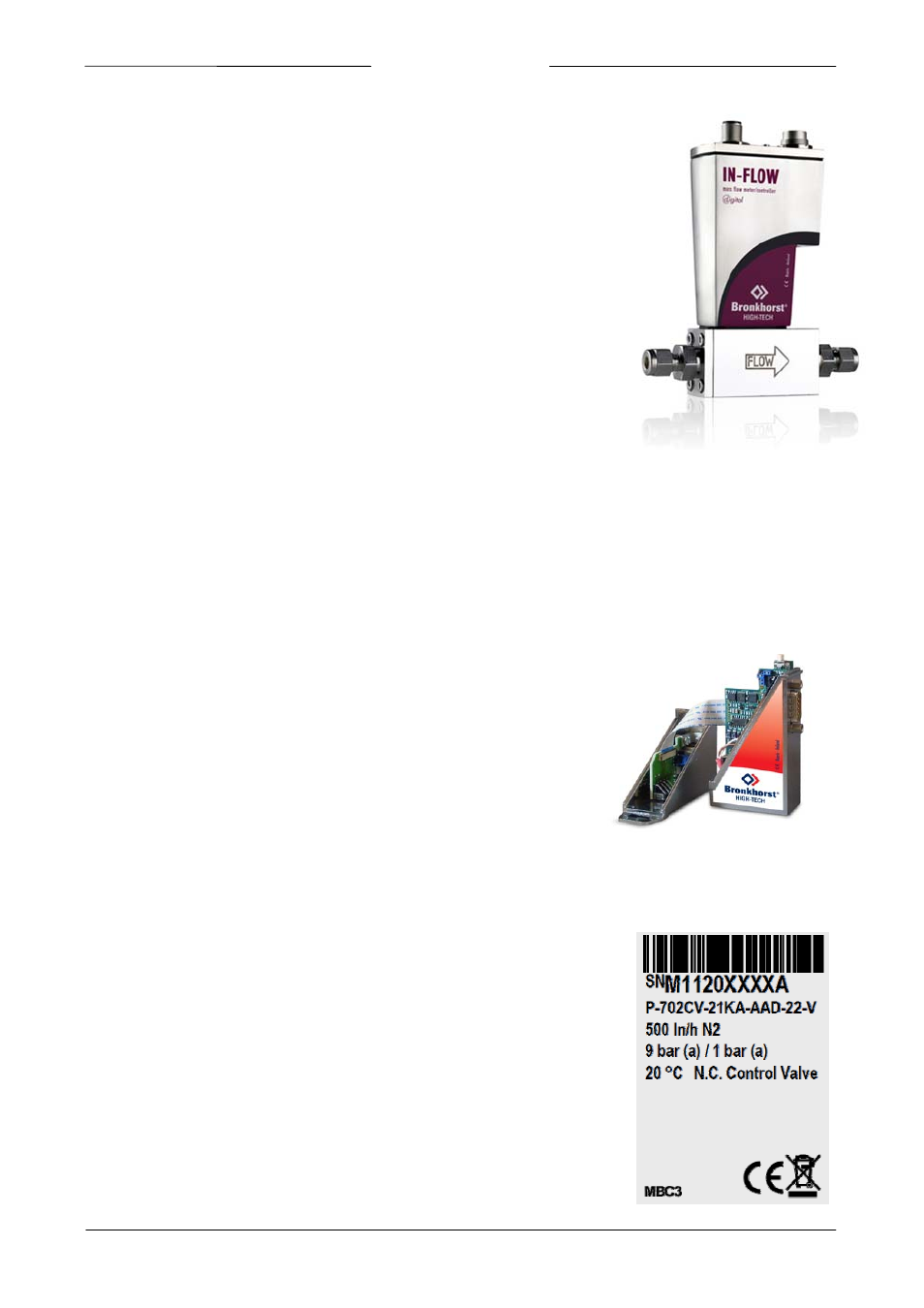General product information, 1 introduction, 2 multibus types – Bronkhorst FLOW-BUS interface User Manual
Page 4: Ntroduction, Ultibus types, 1 general product information

BRONKHORST
®
1 GENERAL PRODUCT INFORMATION
1.1 I
NTRODUCTION
FLOW‐BUS is a field bus, designed by Bronkhorst
1)
, based on RS485 technology, for
digital communication between digital devices, offering the possibility of host‐control
by PC. It can be used with a so called Multibus instrument.
Characteristics:
Baud rates of 187500 (default) or 400000 Baud
+15...24Vdc supply voltage
Easy installation and communication with other Bronkhorst equipment
Automatic node search
Automatic bus optimization. (gap fixing)
PC‐communication through RS232 via local‐host function or stand‐alone
interface
Connection of max. 120 instruments to 1 bus
Maximum bus length: 600 metres
Example of a Bronkhorst
instrument with FLOW‐BUS
interface
1)
Bronkhorst:
This includes Bronkhorst High‐Tech B.V. , Bronkhorst Cori‐Tech B.V. and
M+W Instruments GmbH.
1.2 M
ULTIBUS TYPES
In 2000 Bronkhorst developed their first digital instruments according to the
“multibus” principle. The basic pc‐board on the instrument contained all of
the general functions needed for measurement and control, including
alarm, totalizing and diagnostic functions. It had analog I/O‐signals and also
an RS232 connection as a standard feature. In addition to this there is the
possibility of integrating an interface board with DeviceNet™, Profibus‐DP
®
,
Modbus , FLOW‐BUS or EtherCAT protocol.
The first generation (MBC‐I) was based on a 16 bit Fujitsu controller. It was
superseded in 2003 by the Multibus type 2 (MBC‐II). This version was also
based on the 16 bit Fujitsu controller but it had several improvements to
the MBC‐I. One of them is the current steering of the valve. It reduced heat
production and improved control characteristics. The latest version Multibus controller type 3 (MBC3) is introduced in
2011. It is build around a 72MHz 32 bit NXP ARM controller. It has AD and DA controllers on board which makes it
possible to measure noise free and control valves without delays. The internal control loop runs 6 times faster
compared to the MBC‐II therefore control stability has improved significantly. It also has several improved functions
like reverse voltage protection, inrush current limitation and overvoltage protection.
MBC3 instruments can be recognised by the “MBC3” placed on lower left side
of the instrument label (see example).
Page 4
FLOW‐BUS interface
9.17.024
